Camping in a bell tent can be a magical experience, blending the beauty of nature with the comforts of a cosy shelter. However, nothing disrupts the tranquillity of a night under the stars quite like an invasion of bugs. Did you know that an estimated 2 million people in the UK camp every year, and many report that bugs are their number one annoyance? Whether you’re a camping veteran or just getting started with your bell tent adventures, keeping bugs out is essential for an enjoyable and restful experience. In this guide, I’ll share expert tips to ensure your bell tent remains a bug-free sanctuary, no matter where or when you pitch it.
1. Understanding the Bug Problem: Common Insects in Campsites
Before we dive into the nitty-gritty of keeping bugs out, it’s important to understand what we’re up against. Campsites can be home to a variety of insects, and the type you encounter will depend largely on your location and the time of year.
In the UK, some of the most common pests include mosquitoes, midges, ants, and spiders. Mosquitoes are especially bothersome in the warmer months, while midges can be a nightmare in more rural, damp areas. If you're camping near woodlands, spiders and ants might also make unwelcome appearances.
The reason bell tents can attract these bugs is often due to their proximity to the ground and the warm, inviting environment they provide. A bell tent can become a beacon for insects if not properly maintained, making it crucial to implement preventive measures.
2. Preparing Your Campsite to Minimise Bugs
Choosing the right campsite is your first line of defence against unwanted pests. Here’s how to set up your site to reduce the chances of bugs joining your camping trip:
Location, Location, Location:
Avoid setting up camp near stagnant water, such as ponds or marshes, as these are breeding grounds for mosquitoes. Similarly, steer clear of dense vegetation, which can be home to a host of crawling insects. Opt for a dry, open area where the wind can help keep flying insects at bay.
Clear the Ground:
Before pitching your tent, take a few moments to clear the ground of any leaves, sticks, or other debris. These can provide shelter for insects and give them a quick route into your tent. A clear, dry surface is less inviting for bugs looking for a home.
Use Natural Barriers:
If possible, set up your tent in an area with natural barriers like rocks or hills that can block the wind. This can help keep flying insects from easily reaching your tent.
3. Setting Up Your Bell Tent for Maximum Bug Protection
Now that your campsite is prepared, it’s time to focus on your bell tent itself. Proper setup and maintenance are key to keeping bugs out.
Seal It Up:
One of the easiest ways for bugs to enter your tent is through poorly sealed openings. Make sure all zippers, doors, and vents are securely closed, especially in the evening when bugs are most active. Bell tents often come with high-quality zippers, but it’s still a good idea to check for any gaps or potential entry points.
Physical Barriers:
Using a ground sheet or tarp underneath your tent not only adds a layer of comfort but also creates a barrier between the ground and your tent, making it harder for crawling insects to get in. Ensure that the groundsheet extends slightly beyond the tent’s perimeter to further prevent bugs from finding their way inside.
Inspect for Openings:
Before settling in, give your tent a thorough inspection. Check for any holes, tears, or loose stitching that could allow insects to enter. If you find any issues, patch them up immediately with a tent repair kit.
4. Utilising Natural Repellents and Deterrents
Nature offers a variety of solutions to keep bugs at bay. Here are some natural repellents that can help create a bug-free zone around your bell tent:
Essential Oils:
Lavender, citronella, and eucalyptus oils are well-known for their bug-repelling properties. You can dilute these oils with water and spray them around the entrance of your tent, or even use them on your skin to keep insects at a distance. Not only do they work wonders, but they also smell great!
Citronella Candles and Coils:
Placing citronella candles or coils around your campsite is a simple yet effective way to deter mosquitoes and other flying insects. These can be especially useful in the evenings when bugs are most active. Just be sure to position them safely to avoid any risk of fire.
Insect-Repelling Plants:
If you have the opportunity, consider planting or bringing along pots of bug-repelling plants like rosemary, basil, or marigolds. These plants naturally deter insects and can add a lovely touch of greenery to your campsite.
5. High-Tech Solutions for a Bug-Free Tent
For those who prefer a more technological approach, there are plenty of high-tech gadgets designed to keep bugs out of your tent:
Bug Zappers:
Battery-operated bug zappers are a popular choice for campers. These devices attract and eliminate flying insects, keeping them away from your tent. Position them a short distance from your tent to draw bugs away from your sleeping area.
Ultrasonic Bug Repellents:
These devices emit a sound that is imperceptible to humans but highly irritating to insects. While the effectiveness of ultrasonic repellents can vary, many campers swear by them. They’re compact, easy to use, and can help add an extra layer of protection.
Solar-Powered Repellents:
For the eco-conscious camper, solar-powered bug repellents are a fantastic option. These devices charge during the day and work through the night to keep insects at bay. They’re perfect for longer trips where conserving battery life is important.
6. Practical Tips for Staying Bug-Free Inside Your Bell Tent
Once your tent is set up and protected, there are a few additional steps you can take to maintain a bug-free environment inside:
Seal Food and Trash:
Bugs are often attracted by the scent of food and rubbish. Keep all food in sealed containers and make sure any rubbish is stored in a tightly closed bag. This will help prevent insects from being drawn to your tent.
Regular Cleaning:
Keep your tent and gear clean to reduce the likelihood of attracting bugs. Shake out your sleeping bags and blankets daily to dislodge any insects that may have snuck in. A tidy tent is a less attractive target for pests.
Personal Hygiene:
Believe it or not, personal hygiene plays a role in bug prevention. Insects like mosquitoes are attracted to sweat and body odour. Regularly washing and using unscented products can help keep them at bay.
7. What to Do If Bugs Get Inside: Quick Fixes and Solutions
Despite your best efforts, there’s always a chance that a few bugs might make it inside your tent. Here’s what to do if that happens:
Immediate Action:
If you spot bugs inside your tent, act quickly to remove them. Use a tissue or a small brush to gently guide them outside. Avoid swatting, as this can damage your tent and leave stains.
Natural Remedies:
If you’re dealing with a larger infestation, consider using natural remedies like diatomaceous earth, which is safe to sprinkle inside your glamping tent. This substance is harmless to humans but lethal to insects, as it dehydrates them on contact.
Prevention for the Future:
To prevent future invasions, make sure to shake out your gear before packing up and seal your tent tightly when not in use. Regular inspections and maintenance will also help keep bugs from becoming a problem.
8. Seasonal Considerations: Adapting Your Bug Prevention Strategy
Finally, it’s important to remember that your approach to bug prevention may need to change with the seasons:
Spring and Summer:
These are peak seasons for most insects. Increase your use of repellents and consider doubling up on protective measures, such as using both natural and high-tech repellents.
Autumn:
As temperatures drop, some insects become less active, but spiders and other pests may seek shelter inside your warm tent. Be vigilant about sealing openings and keeping your tent clean.
Winter:
While bugs are less of a concern in winter, it’s still important to keep your tent sealed to prevent any insects from getting in. You’ll also want to ensure your tent is well-ventilated to avoid condensation, which can attract bugs when temperatures rise.
Keeping bugs out of your bell tent is all about preparation and vigilance. By choosing the right campsite, setting up your tent correctly, and using a combination of natural and technological repellents, you can create a comfortable, bug-free environment. Remember, consistency is key—regular maintenance and cleanliness will go a long way in preventing pests from invading your space. So next time you head out for a camping adventure, implement these strategies and enjoy the peace and tranquillity of a bug-free bell tent. Happy camping!


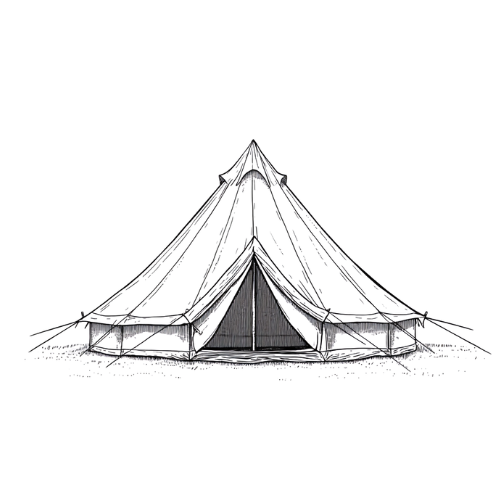 Canvas Bell Tents
Canvas Bell Tents Bell Tent Accessories
Bell Tent Accessories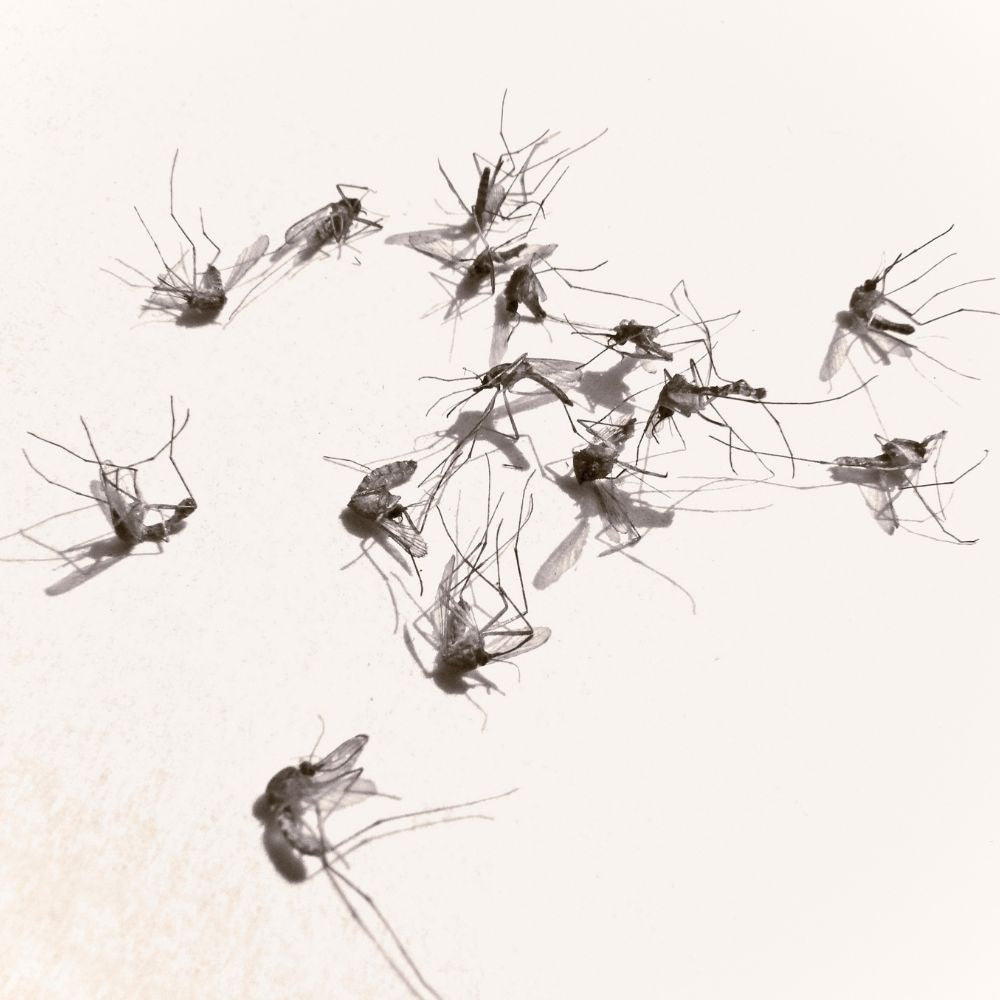
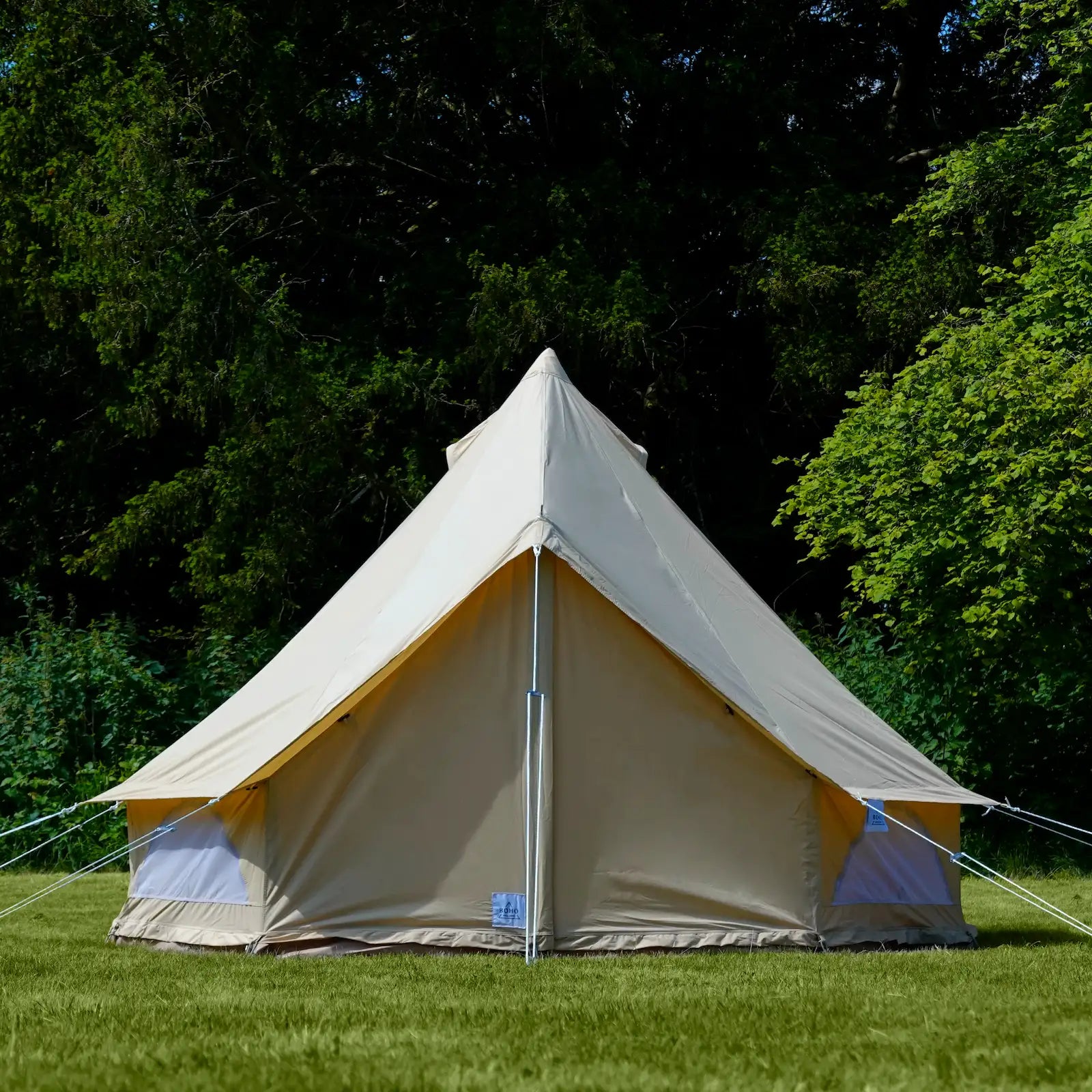

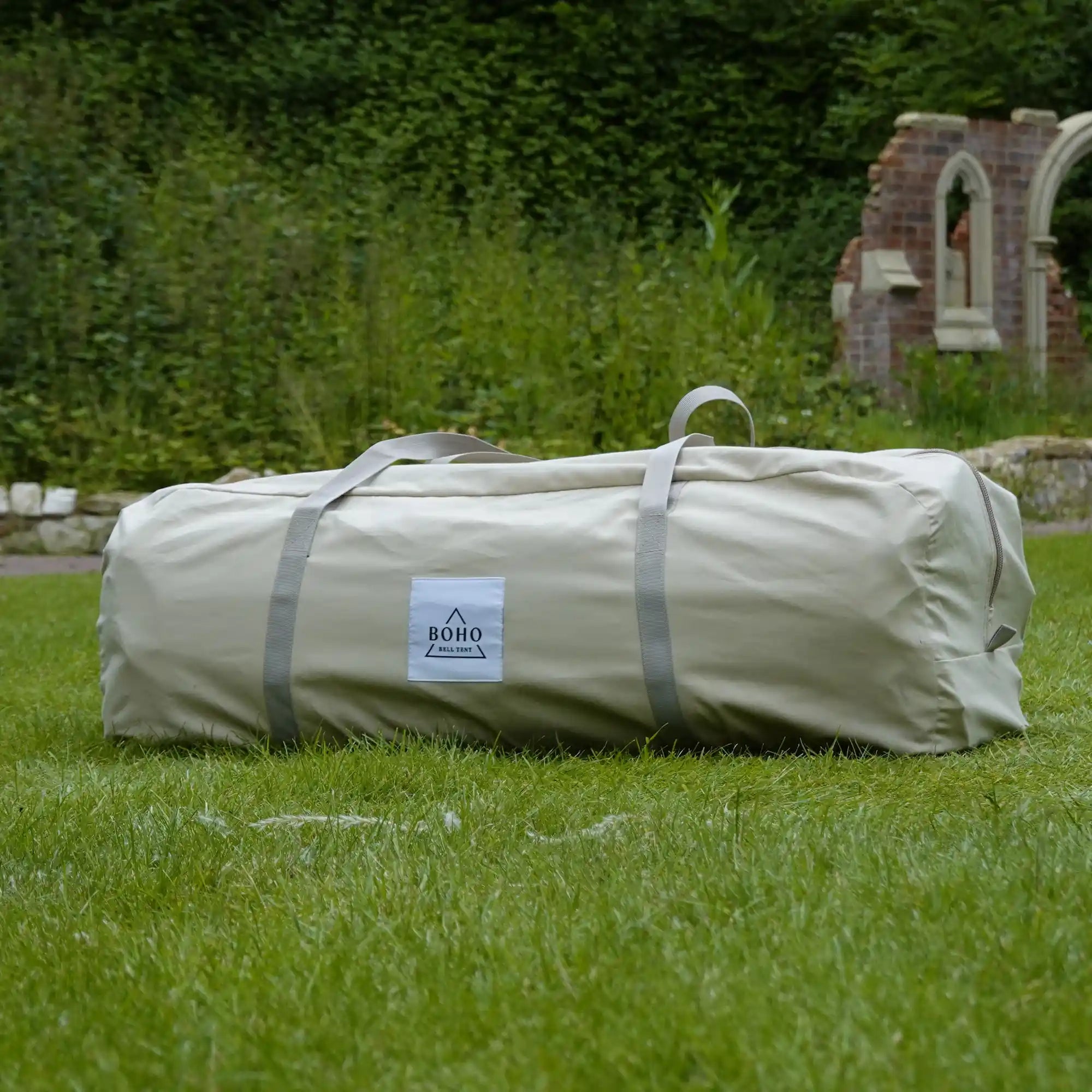
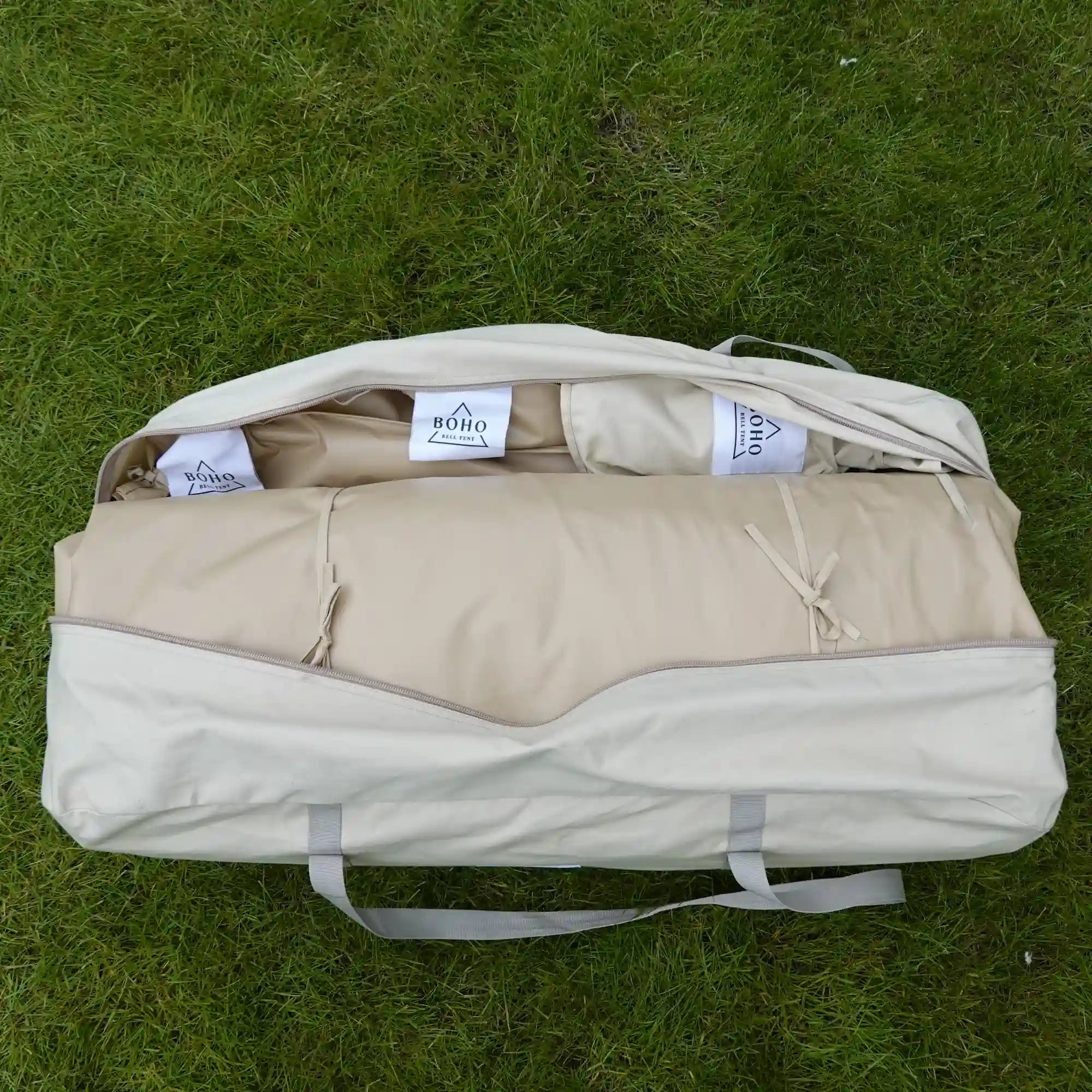
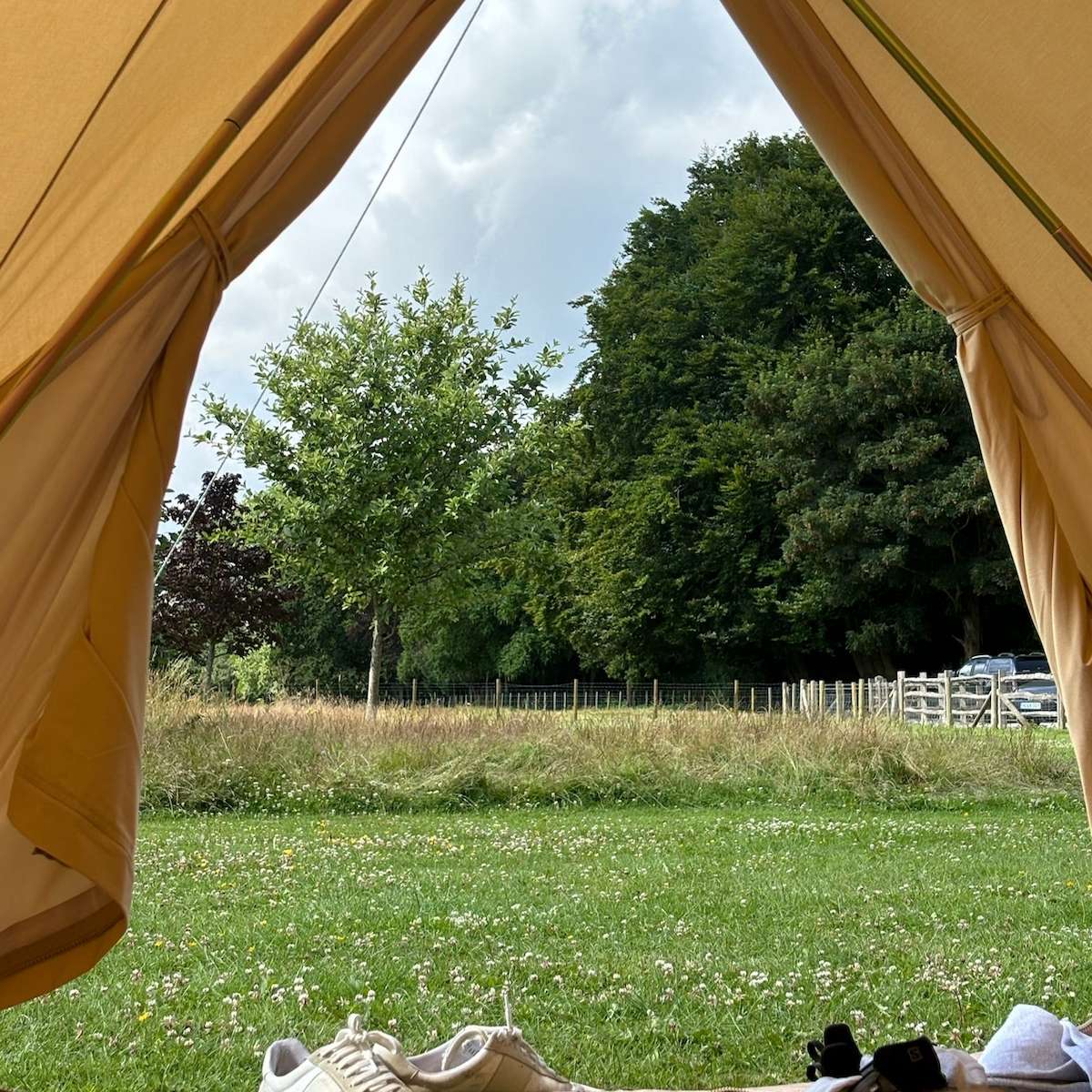
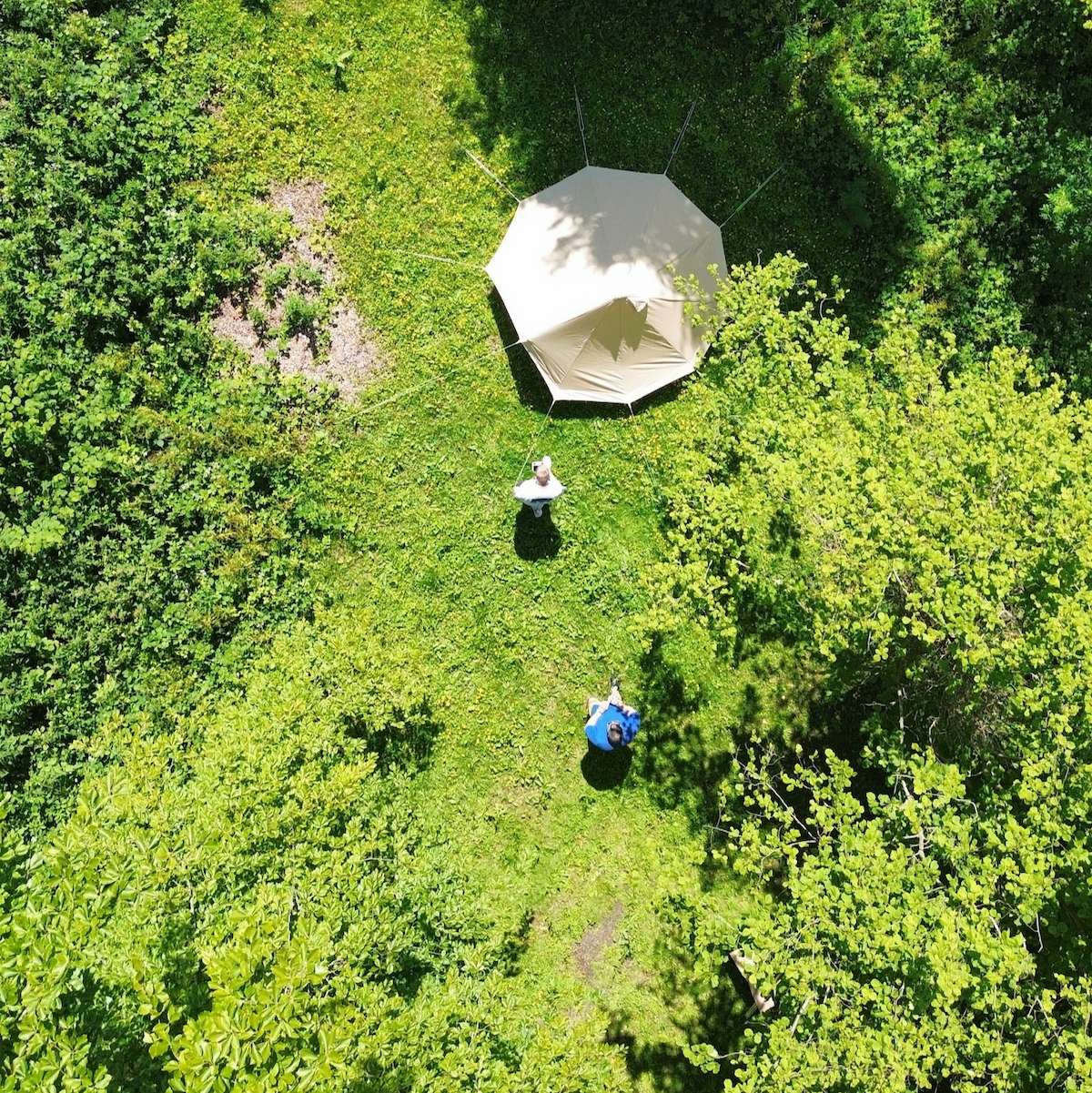
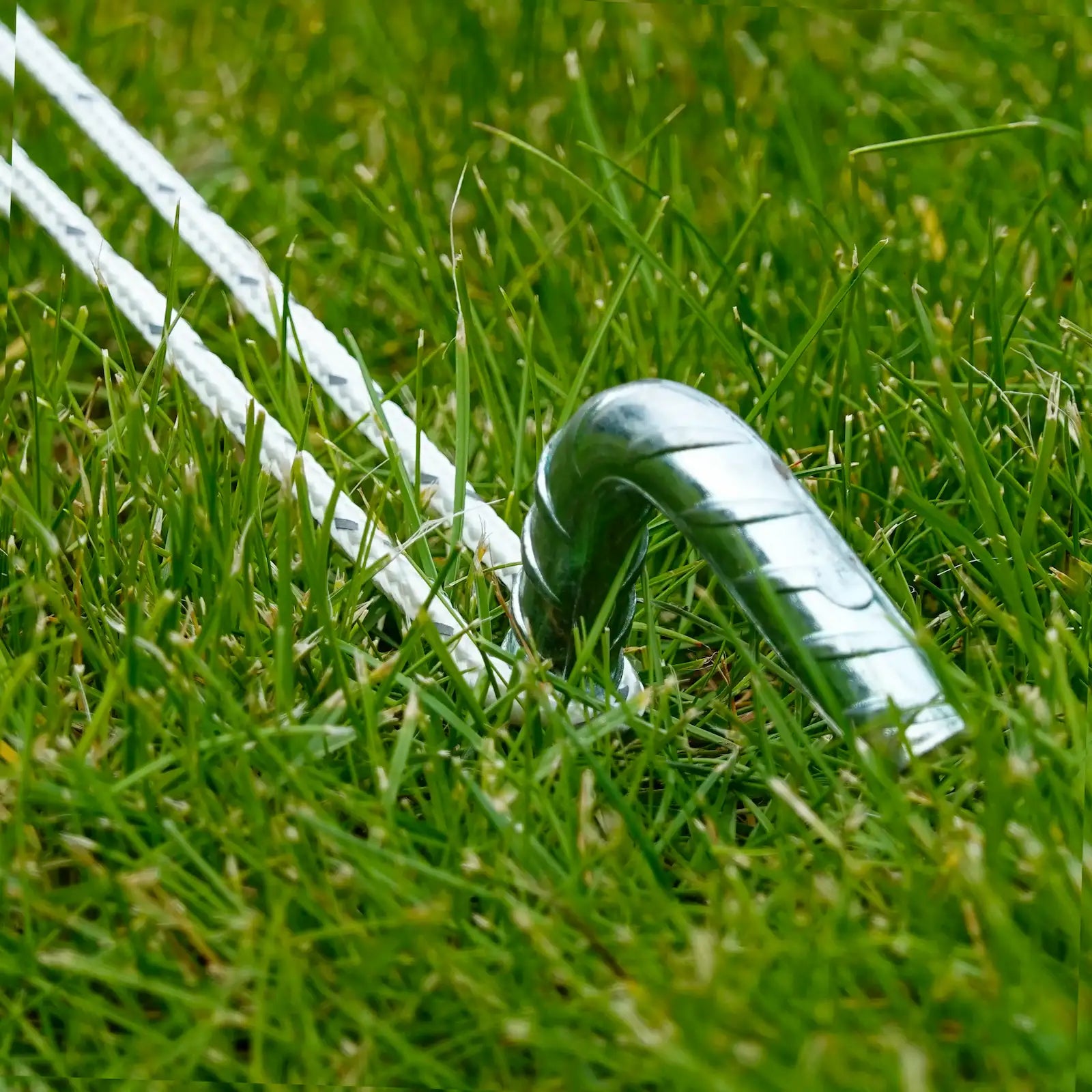
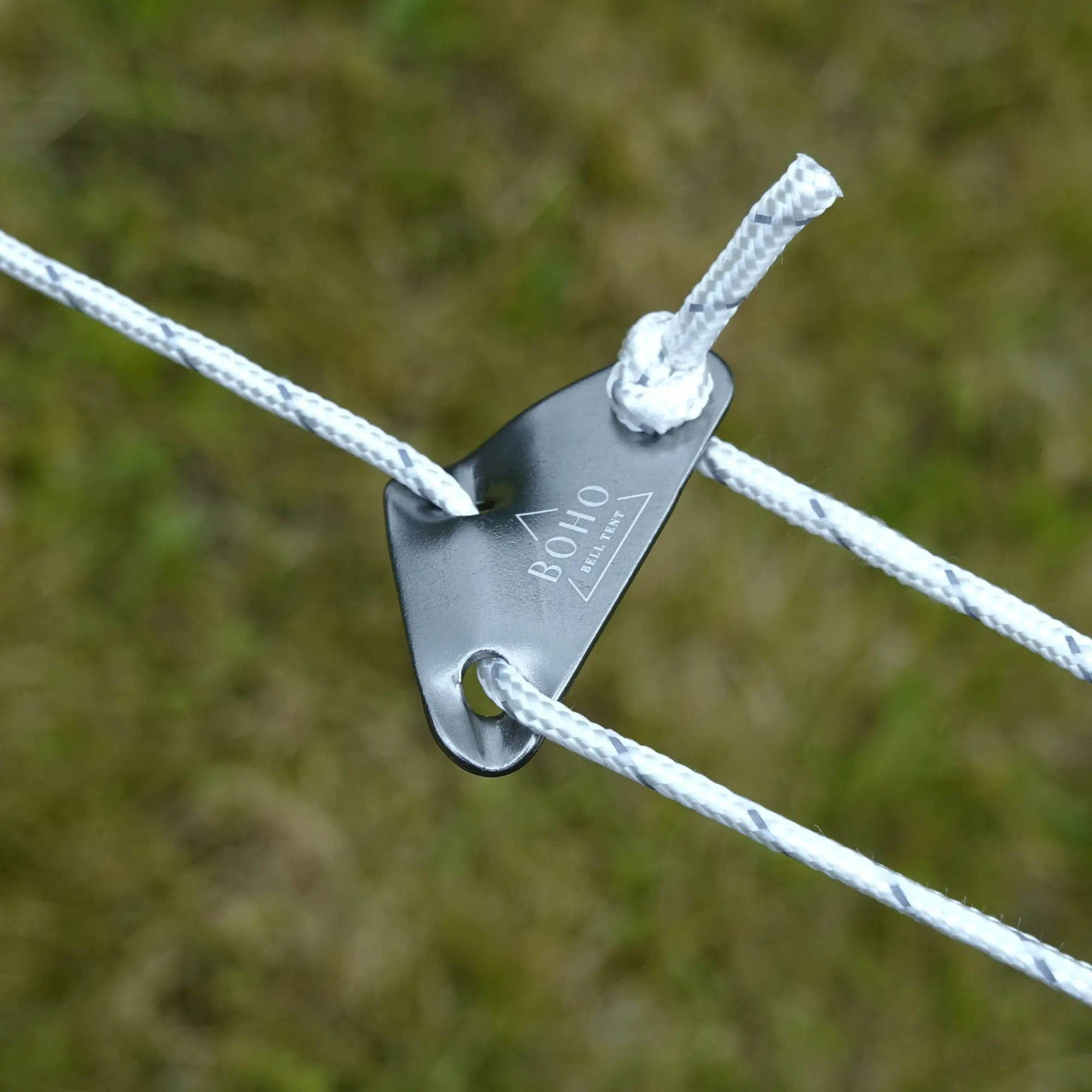
At Boho Bell Tent, we’ve helped hundreds of customers find the perfect setup for festivals, weddings, and off-grid escapes. So if you need any help at all, be sure to reach out!
Share:
How To Organise A Bell Tent
How to Black Out Your Bell Tent